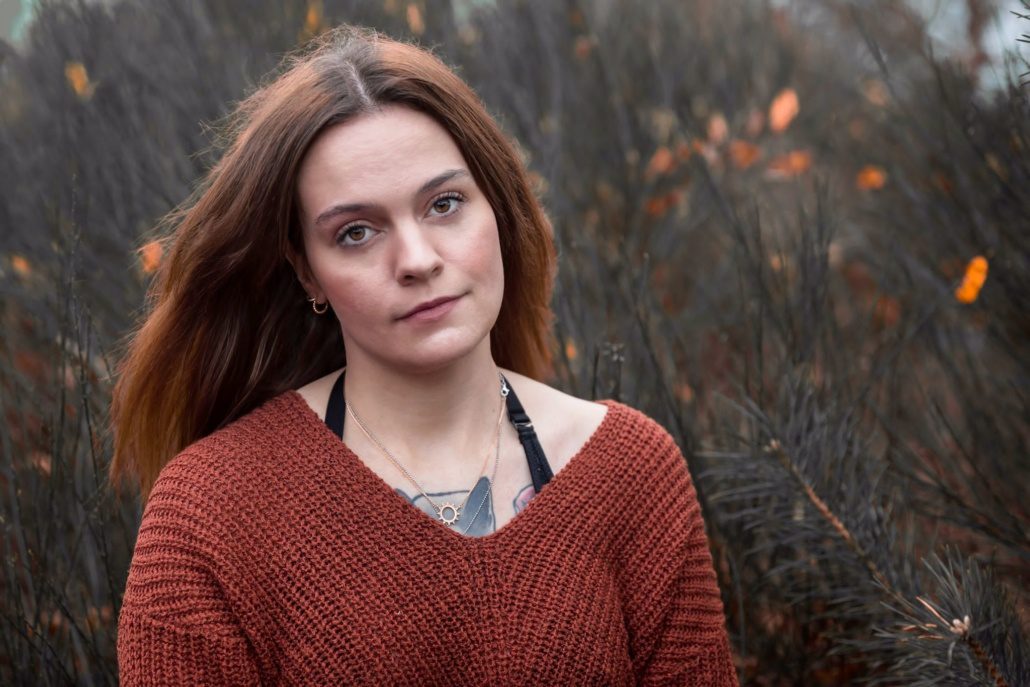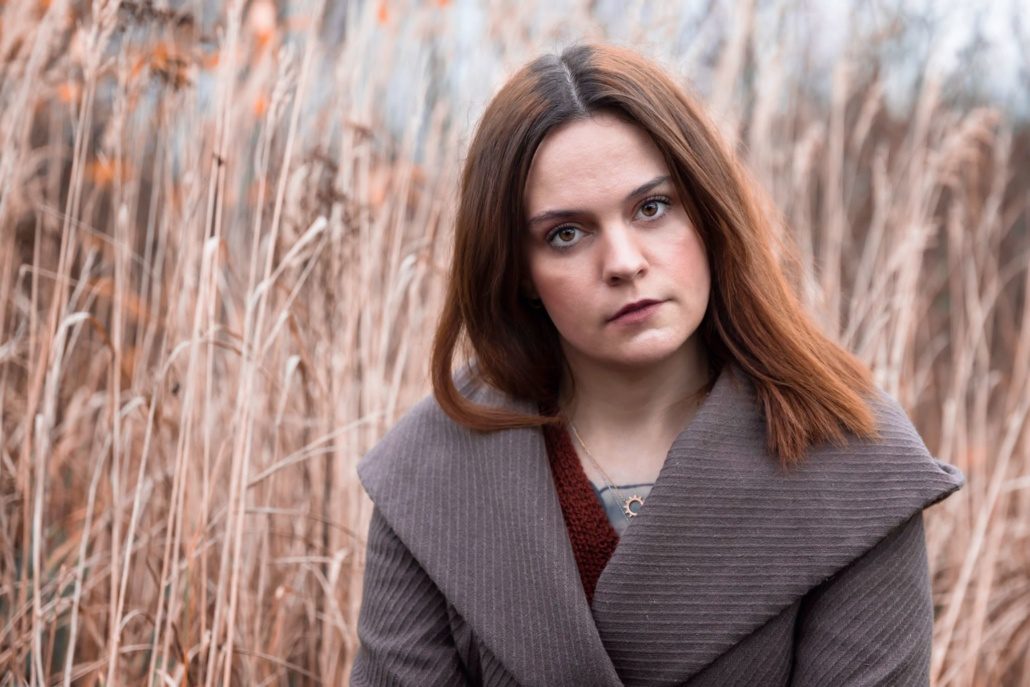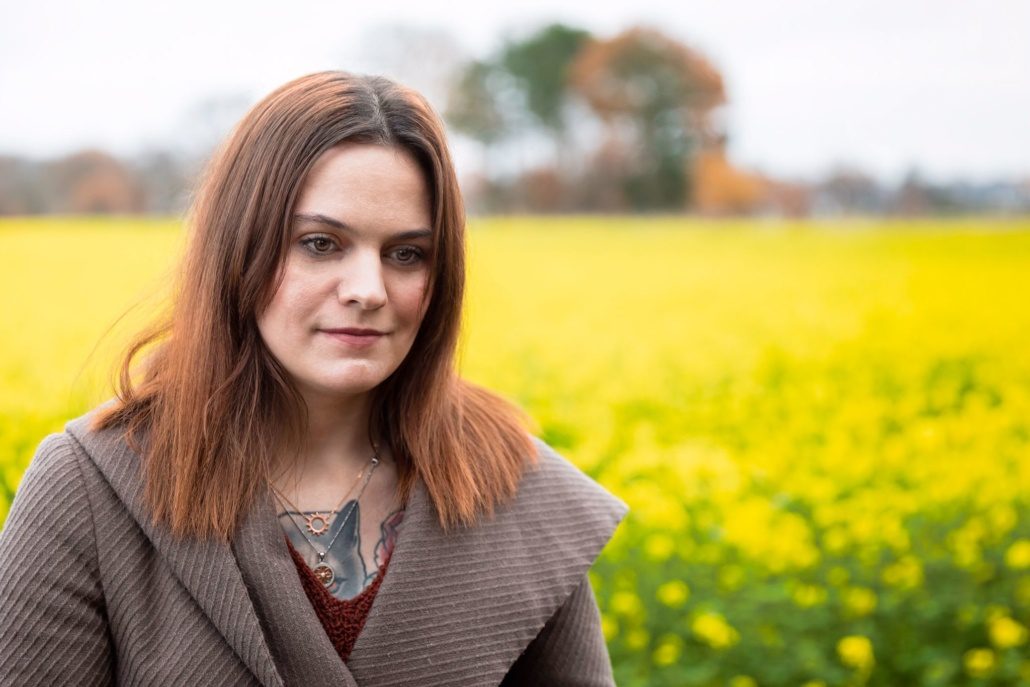“Challenging Medical Norms!”
Interview with Endometriosis Patient Sophie
Sophie has grappled with symptoms suggestive of endometriosis from a young age. Experiences that should have been beautiful, like her first time, were excruciating. Nevertheless, it took many years for her to receive a conclusive diagnosis for her myriad complaints and symptoms. We engaged in a conversation with her.
Hello, Sophie; thank you for taking the time to discuss your experience with endometriosis. Please start by introducing yourself.
Sophie: Of course, I’m Sophie, 28 years old, from near Wolfsburg. I received my endometriosis diagnosis in January 2020, coinciding with my first laparoscopy. However, I’ve likely had the condition for 16 years. The path to diagnosis was quite lengthy, but this year, I finally obtained the certainty I needed.
I believe many patients can relate to the importance of having a definitive diagnosis. How has your perspective on endometriosis evolved since then?
Sophie: The diagnosis was a relief for me, as it made me realize I’m not crazy, and I’m not simply pretending, as society sometimes suggests. Endometriosis has become a significant, albeit not positive, aspect of my life because I often experience pain. I’m unable to carry heavy loads, and this significantly impacts my daily life.
Can you share your medical journey that led to the final diagnosis? You mentioned that you suspect having the condition for 16 years. What were the most challenging aspects during this time?
Sophie: It all began when I had my first period at 12. From that point on, I realized I was experiencing excruciating pain, and it was also different for me than for everyone else because my pain was consistently more severe. When my friends and I had our first sexual experiences, they found pleasure in it, but for me, it was agonizing due to the pain. I discussed this with my doctor. She told me I was uptight and needed to relax. Hearing something like that was incredibly hurtful.
Additionally, men who were not understanding and unaware of my condition said hurtful things. These experiences were deeply distressing for me. Looking back, I can confidently say that it was highly irresponsible for the doctors to dismiss my concerns and tell me not to make a fuss.
Unfortunately, insensitivity from some men is a common experience, with some seeing pain during sex as a challenge to their ego. It is also not uncommon for doctors to make dismissive comments, possibly due to a lack of familiarity with the disease. This can be incredibly frustrating when you are not taken seriously.
Did you change doctors because you felt you were not being taken seriously, or did you consistently see the same doctor who was not attentive to your concerns?
Sophie: I visited multiple gynecologists until I decided to take matters into my own hands and conduct my research to understand the source of my pain and heavy bleeding. In January, I approached my doctor and requested information about endometriosis. He then performed the surgery himself. Unfortunately, the surgery didn’t go very well, which led me to switch doctors again. I’m now under the care of an exceptionally understanding doctor. She’s honest about her limitations and encourages me to seek treatment at the endometriosis center in Berlin, where she believes I can receive the best care. She wants me to be treated by specialists who are highly experienced in this field.
It is indeed a commendable response from your current doctor, as being willing to acknowledge one’s limitations and refer patients to specialists is a valuable approach. It is much better than proceeding with something that could harm the patient.
Sophie: my first doctor, who also made the diagnosis, chose to perform the surgery himself. I was treated as an outpatient and sent home just an hour after the operation. I was prescribed ibuprofen for the next few days, and that was the extent of it. When I mentioned this to my current doctor at Charité, she was astounded.
How did people, besides the men you mentioned earlier, react to your condition and complaints? Did you openly discuss it with everyone?
Sophie: People’s reactions varied widely. Some, like my husband and parents, were quite understanding. However, I also experienced the dissolution of friendships with women because they often couldn’t comprehend my situation. I might post on social media in the morning that I was horse riding, but then I’d have to cancel plans in the evening due to pain. I was frequently accused of faking illness or simply not wanting to meet up. These situations helped me distinguish who my true friends were.
I can completely relate to what you have described, especially the fatigue and constant inflammation that takes a toll on the body. It is not easy to cancel plans, and the adverse reactions can be disheartening. But as you said, it is a valuable way to identify your true friends, those who accept your situation and are there for you.
When you received your endometriosis diagnosis, what emotions and thoughts did it trigger in you?
Sophie: It stirred up a lot within me. Right after getting the diagnosis, I was somewhat in denial. My doctor didn’t provide much information at the time, and I believed that surgery would fix everything. I had the operation in January, but from then until April, I experienced continuous bleeding, which made me realize that there was something seriously wrong with my body. I returned to my doctor and eventually sought help at the endometriosis center, where I received proper information for the first time. It was then that I learned I had a chronic condition and that I had been on the wrong, insufficiently dosed hormones. That’s when the issue of infertility became apparent. It was only at that point that the total weight of my condition hit me, and I went through a very emotional and depressive phase. However, I’ve since come to terms with my situation.
When people learn about endometriosis, they often turn to the internet for information. Did you do the same?
Sophie: Yes. I believe that’s the first thing every person diagnosed with endometriosis does – trying to understand what the condition is. During my research, I came across the Endometriosis Association and also discovered Anna Wilken and her book. Through it, I learned about the various possibilities, from rehabilitation to pain management.
Can you share where you found endometriosis and which areas were affected precisely?
Sophie: Unfortunately, due to the unsuccessful surgery, I can’t provide details, such as the exact stage I’m in. It is assumed that I’m in stage III, but it hasn’t been officially documented.
“Our current situation is conducive to pregnancy.”
I’ve been diagnosed with deep infiltrating endometriosis that also affects my bowel, but I won’t have a precise assessment of its severity until my upcoming surgery in early 2021. My partner and I strongly desire to have children, and we had initially planned to start trying in the next few years. However, I’ve been advised not to wait much longer, as it can take time to conceive. Fortunately, our circumstances are favorable. We have a home, and we’re soon to be married, making this an ideal time for a pregnancy.
In your opinion, why do you think endometriosis is still underestimated as a condition?
Sophie: I believe it’s essentially a gender medicine issue, as endometriosis primarily affects women. Menstruation is often considered a taboo subject, and anything related to the uterus is sometimes viewed with disgust. There’s a need for increased education and awareness in this area.
What advice would you offer to other women who might be uncertain whether they have endometriosis? You were once in that situation.
Sophie: I’d tell them not to let their pain go unaddressed. Even if others tell you it’s normal to experience a lot of pain, it’s essential to advocate for yourself and push for medical attention. Be persistent, share your discomfort with others, and be as open and honest as possible about your experiences.
What limitations do you currently encounter in your daily life? Are there any constraints in your job as well?
Sophie: I work in nursing, primarily caring for severely disabled individuals. This job often involves very long shifts, which can be physically demanding. Endometriosis has also caused fatigue, so now I need to use my work breaks to get some rest. Especially during 12-hour shifts, I try to lie down for about three-quarters of an hour to recharge my energy. I ride, and there are days when I can’t meet the physical demands as I used to. It’s a continuous learning process for me, coming to terms with the fact that I’m not as resilient as I once was. Over time, I’ve accepted that I have this condition, and I’ve learned to live with it, recognizing that it’s a part of who I am.
Are there any changes in your daily habits that you have made to lead a better life with endometriosis?
Sophie: I was already following a vegan diet, as it’s often recommended, and I’m particularly mindful of histamine intake. I’ve observed that I experience pain more frequently, especially after consuming red wine or tomatoes. However, I don’t always give up these foods altogether. Sometimes, I indulge, even though I know my body may react. Additionally, I try to take regular breaks. I practice yoga nearly every day, and I’ve decided to have a co-owner for my horse. This way, I’m not solely responsible for caring for the horse daily. Typically, I spend about three hours at the stables every day, but on days when the pain is too much, I can ask someone to take over.
What changes or advancements would you like to see in the future of endometriosis? What do you believe needs to happen?
Sophie: It is crucial that more funding is allocated to research so that there can eventually be more effective long-term treatments for endometriosis. Equally important is the need for broader social acceptance of the condition. That’s my primary wish, so I try to raise awareness on Instagram. I hope that by doing so, we can expand the reach of knowledge about the condition and reduce its status as a taboo subject in society.
- “Take yourself and your endometriosis seriously. You are not imagining things!” - 7. November 2023
- Interview with Endometriosis Patient Nina - 7. November 2023
- Interview with Endometriosis Patient Nina - 7. November 2023



